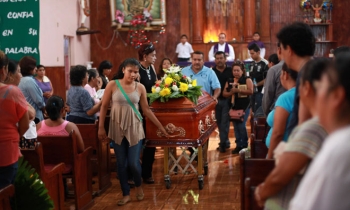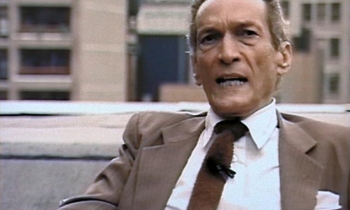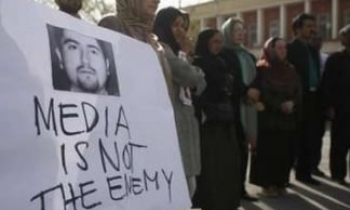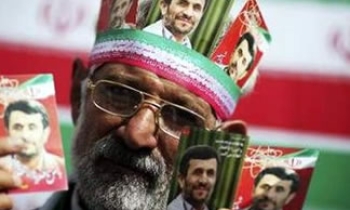Certain countries act as though they are unaware of Article 26 in the Universal Declaration of Human rights which says that everyone has the "right to freedom of opinion and expression.'' It's the same one that says that everyone also has the right to "seek, receive, and import" information and ideas "regardless of frontiers."
To cut to the chase, it's an article seeking to protect journalists from harm in the process of gathering the news or getting out the information. In other words, there must be no open season on journalists in the course of their legitimate duties.
Keeping tabs on countries where press freedom is infringed, Reporters Without Borders, a non-governmental organisation, monitors free expression violations worldwide.
It also defends journalists, writers, and others who are prosecuted for exercising their right to freedom of expression. Finland, Iceland, Ireland, and the Netherlands are top of the press freedom ranking for the year 2006. The United Kingdom ranked 27th, while the United States was 57th. Trinidad and Tobago outranked them both, taking the 19th spot. Other rankings include Jamaica 23rd, Grenada 50th, and India 105th. Clustered at the bottom of the rankings are Iran, 154th, Pakistan, 157th, Cuba, 165th, and at rock bottom is North Korea.
The Brussels-based International News Safety Institute, a coalition of media organisations, media freedom groups, unions, and humanitarian campaigners, has just published some startling figures. They cover the first six months for the year 2007.
Already 100 news journalists and other news media workers have been killed on the job, threatening to make the year 2007 the deadliest for the news business. Last year, the worst for journalists, saw 168 deaths.
A glance at the statistics indicates that Iraq is the worst possible assignment for a journalist. In the first six months of the year, 22 journalists and support staff have already been slain. Wherever there is war or internal conflict, fatalities for journalists are high. In the first half of 2007, Afghanistan, Mexico, Somalia, and Sri Lanka have experienced high death rates. It is easy to understand the presence of some of these countries on the list. What comes as a surprise is Mexico. After Iraq, it is the second deadliest place for journalists. Before focusing on these two countries, I wish to recall some incidents which received extensive media coverage.
There is the case of Russian journalist, Anna Politkovskjya, an outspoken critic of President Putin. She was shot dead in central Moscow last October, and to date, the case has not been solved. Then there was Daniel Pearl, a Wall Street Journal reporter, who was kidnapped by terrorists while on assignment in Karachi, Pakistan in 2002. Captive for a month, Pearl was eventually beheaded, with his captors videotaping the barbarous act. The BBC reporter, Alan Johnston, was held hostage in the Gaza for more than three months by a group, the Army of Islam, inspired by Al Qaeda. He, however, was not killed, but was freed by Hamas. It was a move to show that they and not the Fatah movement can exert authority in the Gaza region. Johnston has described his captivity as an "appalling experience."
Back to Iraq and Mexico. An Iraqi doctor turned journalist says that journalism was the best job in Iraq after the fall of Saddam Hussein. The Americans introduced freedom of the press. As soon as they turned over the press to the Iraqi short-term governments, that freedom disappeared. These governments, dominated by the militias, regard the news media similar to the insurgency - something to be defeated or suppressed. In mid July of 2006, the Iraqi prime minister threatened to close any news media agency that did not totally support the government in its fight against sectarian violence. Iraqi journalists face death from insurgency and Islamic extremists who regard the journalists as infidels doing the bidding of Jews and Zionists. That explains why 56 journalists have been killed since the war began in 2003.
The war in Mexico differs from that in Iraq. The Committee to Protect Journalists, an organisation that protects press freedom, says that drug lords have taken the lives of more than 30 reporters since 2000. Once upon a time repression against reporters came from the government. Now reporters are killed by organised crime groups who traffic in narcotics.
Freedom of expression has become a serious problem because some journalists censor themselves and others are killed for writing exposes on narco traffickers. Only the very brave journalists risk their lives to reveal the activities of those in the drug trade. One such reporter disappeared the day after he published an investigative article on a local drug trafficking group. These groups are powerful and have infiltrated government agencies from whom they receive protection. Three major cartels are reputed to bring in more than ten billion dollars a year, and are said to be bribing from police officers to governors. A governor is being extradited to the United States where he is wanted on drug trafficking, money laundering, and racketeering charges.
Denying press freedom is no longer the sole purview of repressive governments. Drug lords and civil strife are keeping journalists under siege.









